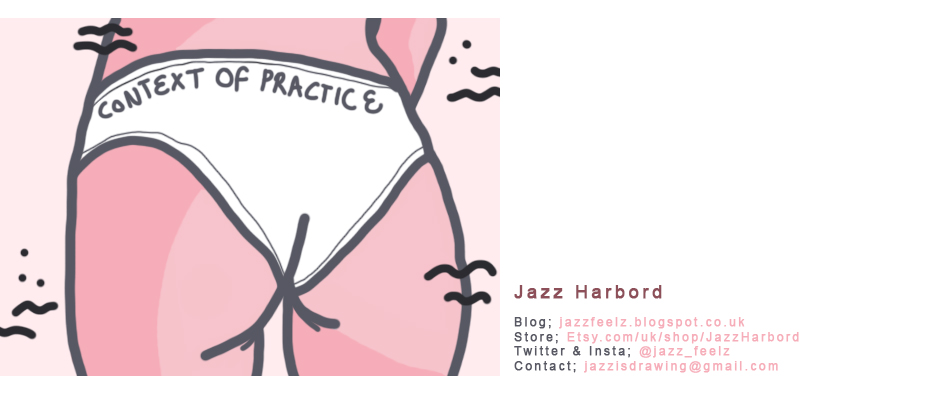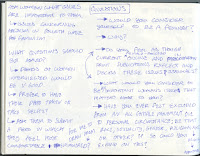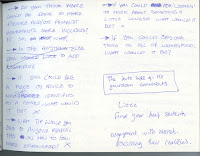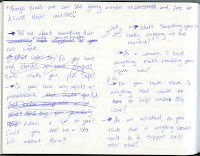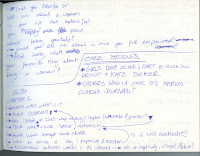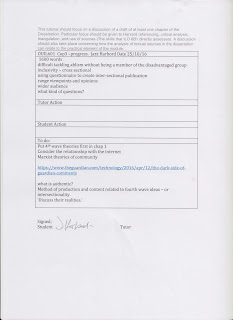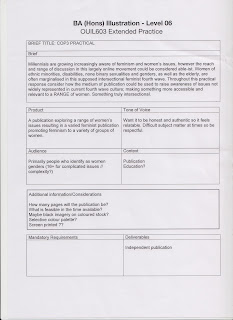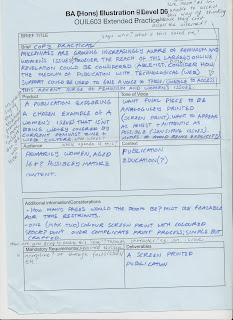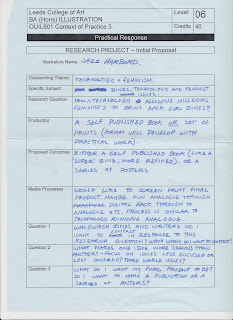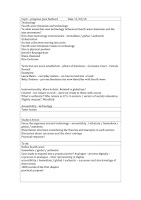I felt as though the answers she gave she felt a little displeased with. I enjoyed their discussion massively; although short I feel as though they discussed some intimate and personal topics with intelligence and sensitivity. She sent the following email;
"I feel these answers are not very useful. And that I have more to say etc. Can I drop back in when I have images and/or thoughts? x
1. Tell me about something that made you happy this week.
Every time I had a cup of tea. Being asked to be part of your project.
2. Do you have any objects or possessions that mean a lot to you? Could you tell me a little bit about them?
I have a small tattoo on my palm that my boyfriend inked when I visited him in Ohio, USA, it seems to be a special reminder of this time for me, more so than some of the physical items which I brought back to the UK. It’s a small heart with a link missing where some ink dropped away and which makes it more meaningful to me.
3. What’s something you’re really enjoying at the moment?
Etsy! I started a small shop on there with the intention of expanding (which hasn’t happened) but I adore browsing through handmade jewellery and bespoke items.
4. As a woman, is there anything that’s troubling you at the moment?
My bodily hair. I am dark and fair with hair on most of my skin.
The presidential election- bad choices and bad responses from hateful individuals!
5. If so, do you think there is anything that could be done to help combat this issue?
The correlation between the feminine and the hairless should be abolished through women refusing to succumb to societal pressure. I would be anxious of how this statement would affect the way my (trans)womanhood was perceived by others.
6. As an individual, do you think there is anything women and girls could do to support each other more?
Reserve judgements and communicate.
7. Could you describe or tell me about a woman in your life that makes you feel proud about being yourself?
My best girlfriend Alice, who has known me for the longest time. She seems to see me how I want to see myself.
8. Could you tell me about a time you felt empowered?
During my degree. I felt my notions on trans-appreciation and understanding were taken very seriously and that my works were valued for this. I would also note that my artist talk, more so than other tasks empowered me.
9. And lastly, what is your favourite thing about being a woman?
For me, the most prized thing about being a woman is knowing that I am living true."
I'm hoping I can get some further dialogue from this initial posting. She mentioned getting back in touch so I'm confident I'll be able to extract some more from her. She seemed to raise the issue of hair in it's relation to femininity, both within these answers and within artwork I know she's created previously. I decided to use this as something to engage with. What I was most from these answers is something truly real. I don't want my interviewees to feel as though they HAVE to answer these questions as though they were a survey. I'm hoping that they feel comfortable enough to talk openly and passionately about what they believe in. The content of this publication is what will link it intrinsically to Fourth Wave Intersectional Feminism rather than the image making. I'll admit at the moment I'm a little concerned about how I'm going to fulfil this project practically. I'm relying a lot on the co-operation of others, and I feel as though I can't really start illustrating until I've got the answers in full. It's a tricky situation but one I'm hoping I'll be able to work through.
